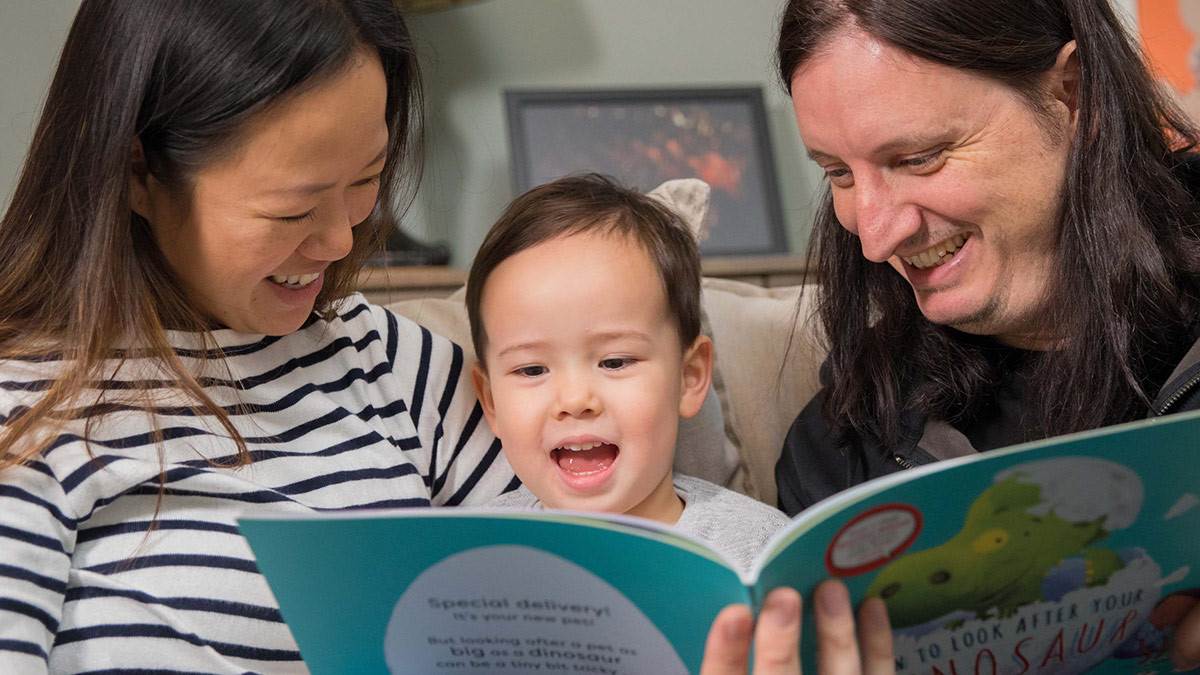General advice on working with families
From effective communication to identifying barriers to engagement - some hints and tips for delivering Bookstart to the families you work with.

- Remember, every child matters and every child is entitled to their Bookstart packs
- Acknowledge the experiences parents and carers may have had, and think about how you can adapt your approach to support them
- Any support provided should be delivered sensitively, so that parents and carers do not feel judged or criticised
- It's important to communicate effectively with parents and carers. Parents and carers may find it easier to ask questions or make comments without fear of being misunderstood if communication is clear
- Be flexible in your approach to gifting to meet the needs of the families you work with
- Consider the needs of the families you are working with. For example, would they benefit from the dual language offer? Does the mum, dad or carer have any additional needs themselves?
- Make the gifting experience fun for the whole family. If there are any siblings attending gifting make sure that they feel included, you can do this by suggesting how they could read with their sibling
- Share Bookstart key messages with mums, dads and carers. Make sure that there is an understanding that they are their child’s first educators and that it is never too early to start reading to their child
- Signpost to other services which could benefit the families you work with, for example libraries and children’s centres
- It's important to think about any barriers parents and carers may face in engaging with you and your setting. Identifying barriers before engaging with a family could help break down some of those barriers
Factors that may be barriers for many families
Time
- We understand that many parents and carers work and have a busy life, this may mean that they feel that there is not enough time to incorporate reading with their child in a day. It is important not to mistake the fact the parent is busy with the parent/carer not being interested in engaging with their child.
Work with them to try and establish how they can add rhymes, songs and reading into their routine. Perhaps they have a commute with their child or could incorporate reading into their bath routine with bath books. Communication about how long they should spend reading with their child and how it doesn’t have to be part of a strict routine is important.
Changing parental and carer perceptions around reading could lead to increased reading time.

Confidence
- Try not make assumptions about the capabilities of parents/carers - they may not feel confident within your setting. This might be because they don’t feel at ease or because of a poor experience in the past. The experience may also be completely new, which can lead to shyness and a lack of confidence.
- Ensure that you are as welcoming as possible. Try to gain an understanding of how confident the parent or carer is with books. Confidence can be a barrier to parents reading and singing with their child. You can support the family by modelling these activities for them or by signposting them to other services which could benefit the family, for example library Rhymetimes, the Bookstart Corner programme or stay-and-play sessions at the local children’s centre.
Literacy
- Not all parents and carers have the same reading or writing ability. Some may not feel comfortable talking about their own abilities or about reading with their child. Explain how sharing rhymes and just talking about pictures is as significant for their child as reading the book.
- Talk parents through the guidance leaflet and explain the significance of engaging their child with stories and rhymes. You can also signpost parents and carers on to other services that will support their literacy.
